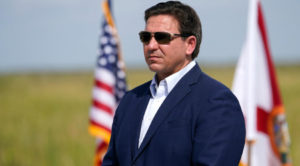The tradition of presidents offering empathy to survivors of tragedies has become a significant aspect of the modern presidency. The President, often accompanied by the First Lady, arrives at the disaster site, greeted by local officials and party members, turning the visit into a political event where survivors are inadvertently cast as supporting actors in a carefully scripted drama created by the president’s political team.
When tragedies occur during election seasons, the sentimental display can sometimes overshadow the gravity of the disaster itself. Striking the right balance between genuine sympathy and political grandstanding becomes a delicate task for presidents, as they navigate the line between heartfelt sorrow and theatrical sentimentality.
While some presidents have excelled in projecting empathy during public tragedies, others have struggled. Bill Clinton was known for his ability to play the role of the mourner-in-chief, but his sincerity often came into question. For example, his visit to the Oklahoma City bombing memorial seemed to veer into using the tragedy for political attacks on Republicans, reflecting a tendency among Democrats to link Republicans to terrorism.
In contrast, Ronald Reagan managed to strike a balance between personal empathy and presidential solemnity. He didn’t try to outshine the grieving individuals, instead embodying the role of the president visiting a scene of sorrow. Unfortunately, not all presidents have followed his example.
Joe Biden’s attempts at portraying the “presidential comforter” have fallen short. His habit of sharing unrelated personal anecdotes as a way to display empathy has come across as inauthentic. In some instances, like recounting his experience with a kitchen fire, his stories have felt disconnected from the gravity of the situations he’s addressing, raising questions about his ability to project genuine compassion.
Biden’s empathy has been a cornerstone of his political career, but there have been instances where his attempts at empathy appear disingenuous. While the personal loss he’s faced is undoubtedly tragic, the stories he shares often lack the authenticity that true empathy demands. Critics argue that his efforts to connect his experiences with those of disaster survivors fall flat, as his personal anecdotes don’t resonate in the same way as the challenges faced by the victims.
Recent events, such as the Lahaina wildfire response, have revealed discrepancies between Biden’s rhetoric and the actual assistance provided. Survivors have expressed frustration over the inadequate aid offered by the government, highlighting a disparity between the President’s promises and the reality on the ground. The media’s handling of such incidents also underscores the potential bias in portraying crises under different political banners.
Ultimately, projecting empathy in times of tragedy is a nuanced skill, and while some presidents have managed to strike the right balance, others have fallen short. The disconnect between Biden’s attempts at empathy and the actual impact of his policies and responses raises important questions about authenticity, political motivations, and the role of the media in shaping public perception.





